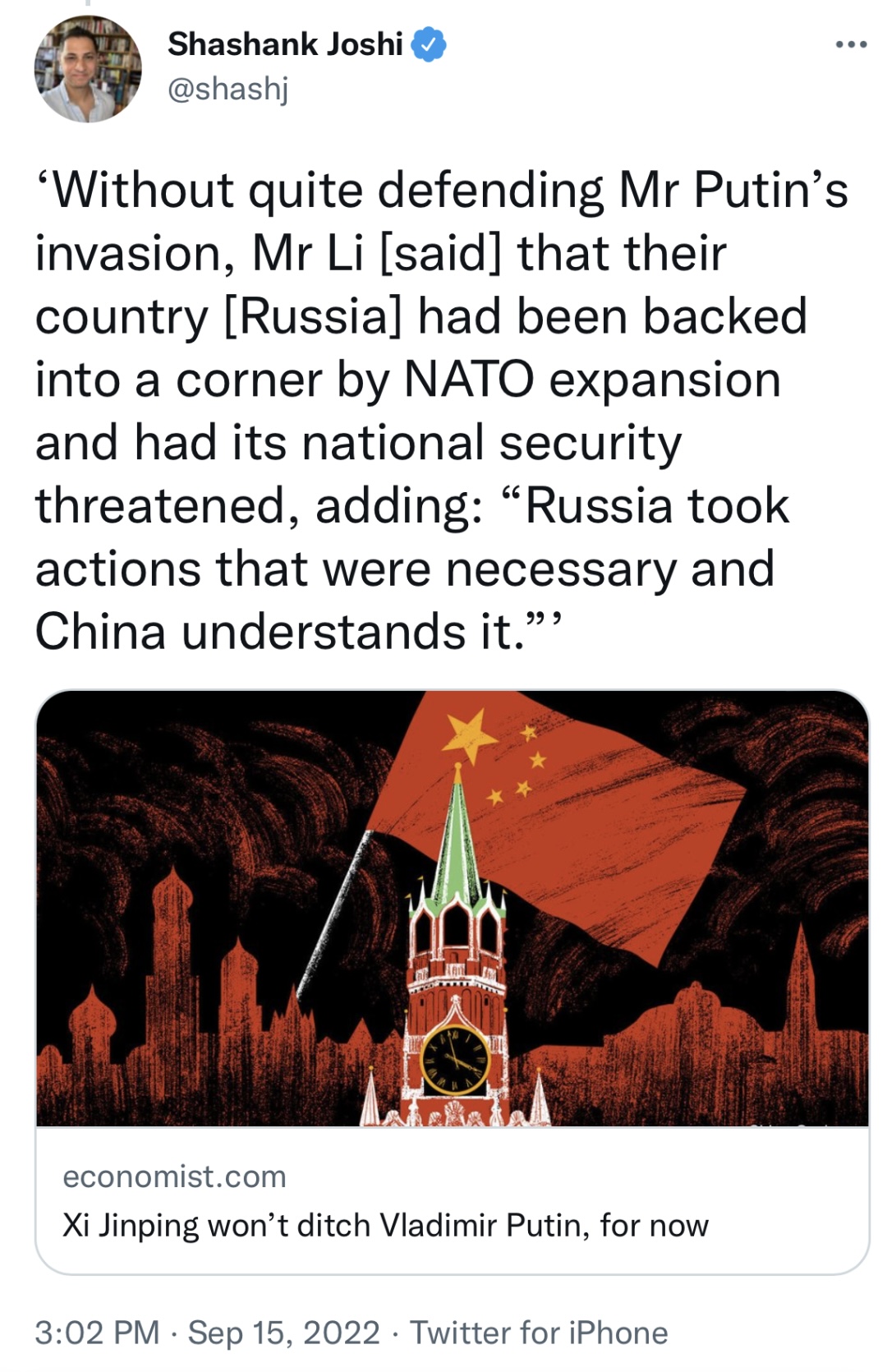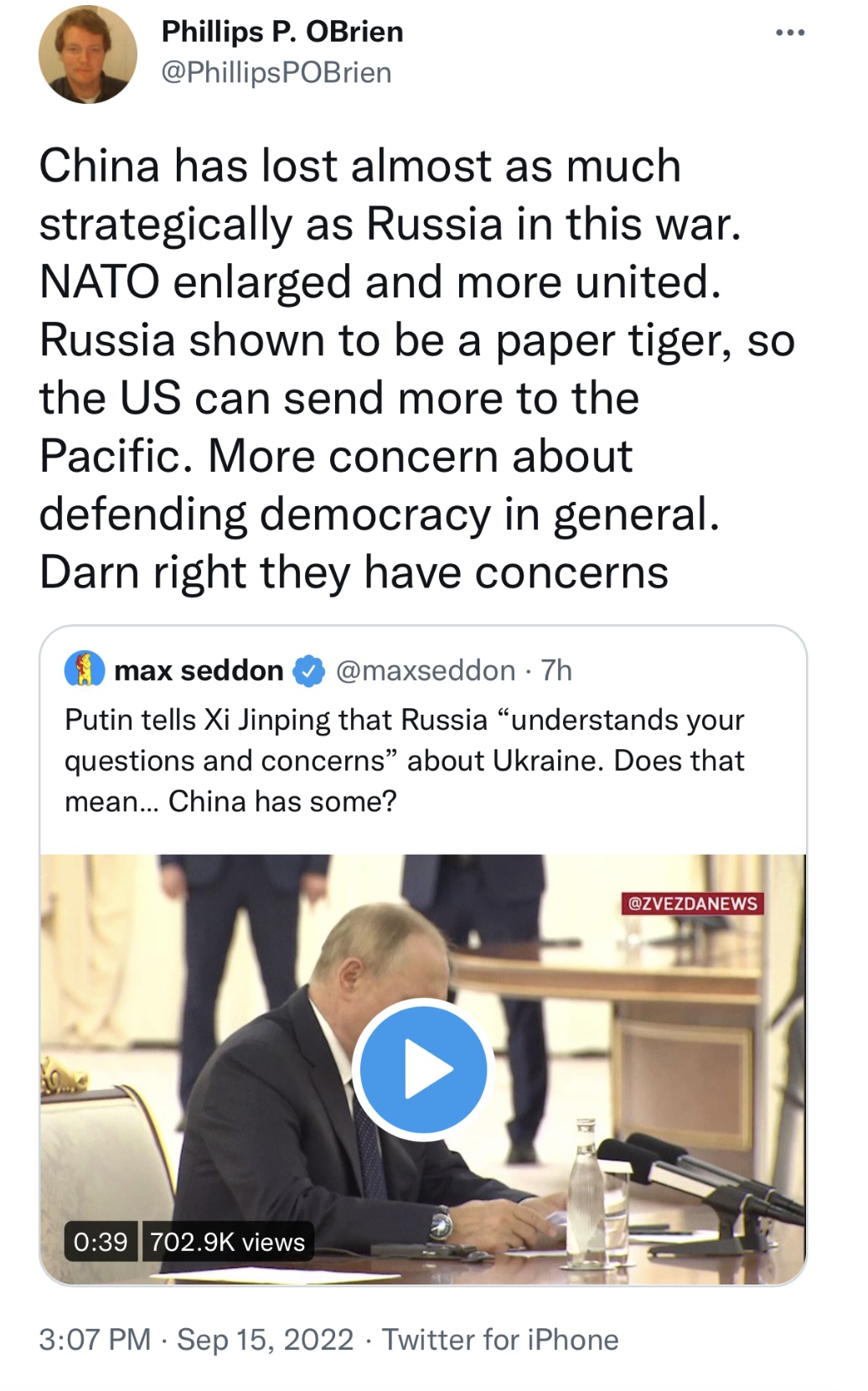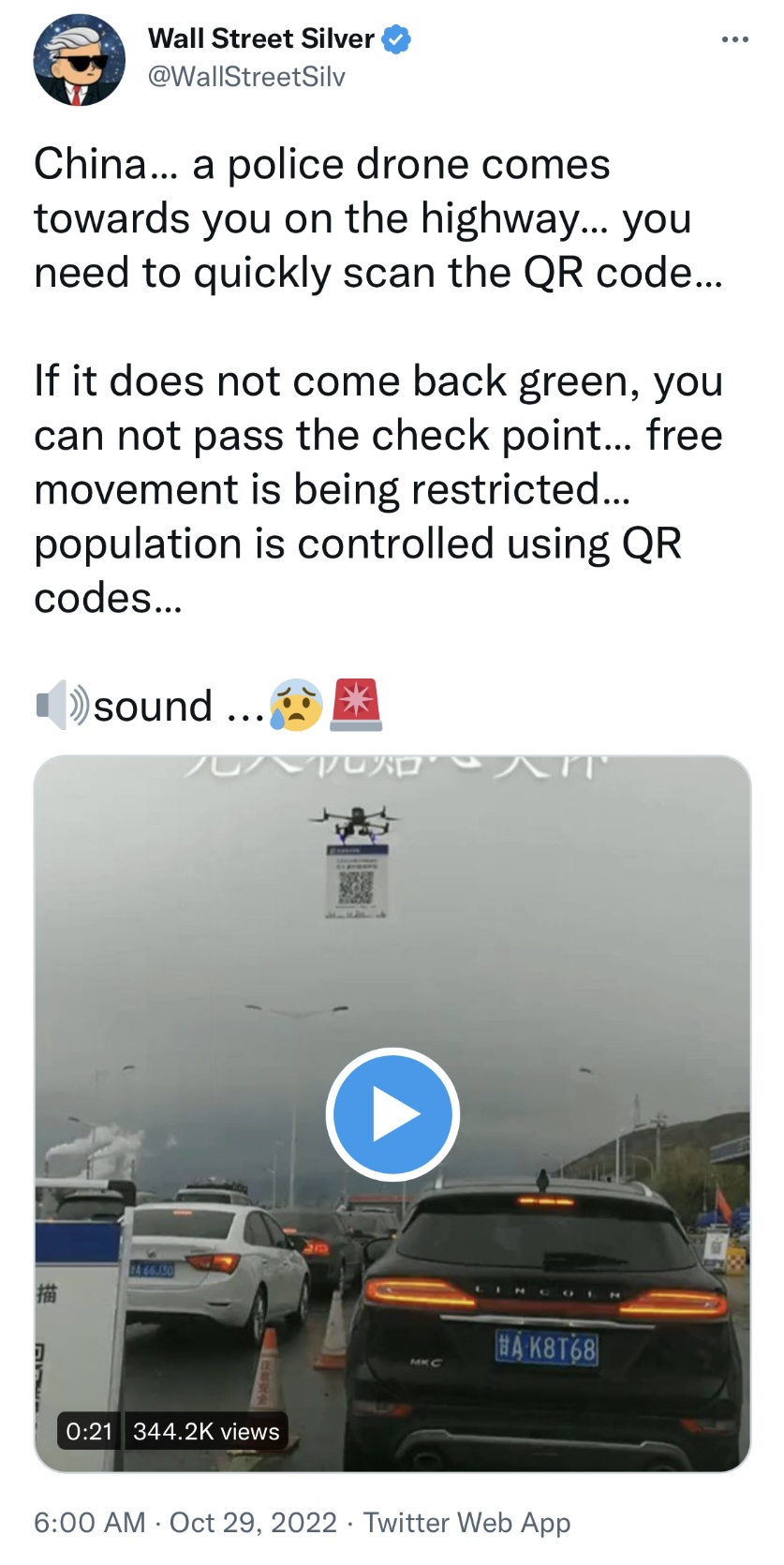Post by LFC on Mar 15, 2022 21:34:17 GMT
Is China getting ready to join Russia in an Alliance of Autocracies? I could easily see the world dividing strongly on that line, even in terms of trade and economics.
The setting couldn’t have been more amicable. U.S. national security adviser Jake Sullivan and Chinese diplomat Yang Jiechi met Monday in the posh Waldorf Astoria Rome Cavalieri, which boasts a Michelin starred restaurant and some of the best views overlooking Rome’s magnificent wonders. But neither diplomat seemed to enjoy the setting, or the encounter, which came on the heels of the U.S. announcement that they were “deeply concerned” that China would soon help Russia within its invasion of Ukraine, likely prolonging the misery for all involved. The U.S. added that China would likely deny any assistance. China, for its part has called the U.S. announcement “disinformation.”
Chinese and American secret service details kept curious journalists at bay, allowing only two photographers—one Chinese and one American—into the sterile meeting room where the two men sat flanked with aides at long tables facing each other in what Sullivan called an “intense” seven hours. The talks were not exactly negotiations but rather airing of differing views about what is happening in Ukraine, according to the State Department spokesman after the meeting.
The heavily guarded meeting was planned long before Russia’s invasion of Ukraine. And the White House readout gave nothing away, confirming only that Sullivan “met today with Chinese Communist Party Politburo Member and Director of the Office of the Foreign Affairs Commission Yang Jiechi in Rome, Italy.” The meeting, the readout says, “followed up on the November 15, 2021 virtual meeting between President Biden and President Xi.”
A senior administration reached by the Guardian after the meeting shared little. “It was an intense seven-hour session, reflecting the gravity of the moment, as well as our commitment to maintaining open lines of communication,” the official said. “This meeting was not about negotiating specific issues or outcomes, but about a candid, direct exchange of views.”
When asked if it was a success, the answer was even more vague. “I suppose it depends on how you define success,” the official told the Guardian. “But we believe that it is important to keep open lines of communication between the United States and China, especially on areas where we disagree.”
Little else was divulged. “Mr. Sullivan raised a range of issues in U.S.-China relations, with substantial discussion of Russia’s war against Ukraine,” the readout states. “They also underscored the importance of maintaining open lines of communication between the United States and China.”
But a cable sent to allies in Europe and Asia hours after the meeting ended alluded to greater concerns tied to U.S. intelligence reports that China might soon help Russia and then deny it. “It’s real, it’s consequential, and it's really alarming,” a U.S. official who had read the sensitive cable told Reuters.
Chinese and American secret service details kept curious journalists at bay, allowing only two photographers—one Chinese and one American—into the sterile meeting room where the two men sat flanked with aides at long tables facing each other in what Sullivan called an “intense” seven hours. The talks were not exactly negotiations but rather airing of differing views about what is happening in Ukraine, according to the State Department spokesman after the meeting.
The heavily guarded meeting was planned long before Russia’s invasion of Ukraine. And the White House readout gave nothing away, confirming only that Sullivan “met today with Chinese Communist Party Politburo Member and Director of the Office of the Foreign Affairs Commission Yang Jiechi in Rome, Italy.” The meeting, the readout says, “followed up on the November 15, 2021 virtual meeting between President Biden and President Xi.”
A senior administration reached by the Guardian after the meeting shared little. “It was an intense seven-hour session, reflecting the gravity of the moment, as well as our commitment to maintaining open lines of communication,” the official said. “This meeting was not about negotiating specific issues or outcomes, but about a candid, direct exchange of views.”
When asked if it was a success, the answer was even more vague. “I suppose it depends on how you define success,” the official told the Guardian. “But we believe that it is important to keep open lines of communication between the United States and China, especially on areas where we disagree.”
Little else was divulged. “Mr. Sullivan raised a range of issues in U.S.-China relations, with substantial discussion of Russia’s war against Ukraine,” the readout states. “They also underscored the importance of maintaining open lines of communication between the United States and China.”
But a cable sent to allies in Europe and Asia hours after the meeting ended alluded to greater concerns tied to U.S. intelligence reports that China might soon help Russia and then deny it. “It’s real, it’s consequential, and it's really alarming,” a U.S. official who had read the sensitive cable told Reuters.





